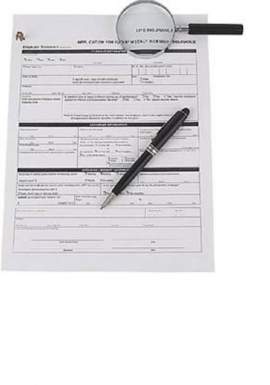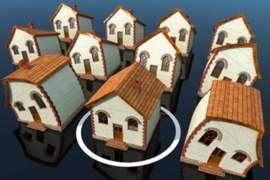
Connecticut Landlord Tenant Law

Guide to Connecticut Landlord Tenant Law
Whether you are a renter or a landlord, CT landlord tenant law offers you protections that go beyond your lease. Connecticut landlord tenant law specifies responsibilities and rights for both landlords and tenants, and this guide can explain what those responsibilities are. You will also learn how a landlord can legally evict according to CT landlord tenant law, and what tenants can do if their landlord is failing to uphold the lease terms.
Landlord Responsibilities
Landlords are required by Connecticut landlord tenant law to provide a dwelling that is habitable. According to CT landlord tenant law, habitable housing must have safe hot and cold running water, functional heating and plumbing systems, well lit entryways and hallways, and be free from pests or noxious odors.
In addition to providing a habitable place to live, Connecticut landlord tenant law requires landlords to make timely repairs to the property and uphold all terms of the lease. CT landlord tenant law only allows landlords to enter a dwelling in order to perform reasonable inspections and to make repairs as needed. In general, landlords are required by Connecticut landlord tenant law to give notice before entering a house or apartment. However, if an emergency repair is needed, landlords are permitted by CT landlord tenant law to enter with little or no notice.
Tenant Responsibilities
Tenants are responsible for maintaining the cleanliness of their dwelling and paying their rent on time. Rent may be up to 9 full days late before a landlord is entitled to evict under Connecticut landlord tenant law. You must also give your landlord notice if you plan to move out, and must notify your landlord if a repair is needed.
While normal wear and tear is expected and will not impact your security deposit, CT landlord tenant law allows a landlord to evict a tenant for causing major damage beyond normal wear and tear. If you or a guest damages the property, you are required to notify your landlord and pay for the costs of repairing the damage.
Evictions and Lease Breaches
Evicting a tenant may only be done for cause according to Connecticut landlord tenant law. Tenants may be evicted for non-payment of rent, material breaches of their lease, or for “holding over” beyond their initial lease agreement term. No matter what, no landlord is permitted by CT landlord tenant law to perform a so-called “self help” eviction. This means that if your landlord attempts to evict you by shutting off your utilities, changing your locks, or removing your belongings from the unit, he or she is in violation of Connecticut landlord tenant law and you should seek legal help immediately.
If your landlord is refusing to make needed repairs, CT landlord tenant law does not allow you to deduct the cost of repairs from your rent. Many people also believe that Connecticut landlord tenant law allows tenants to withhold rent if a landlord is violating the lease agreement, but this is not the case. In order to be able to withhold rent or deduct the cost of repairs, you must go to court. Talking to an attorney with experience in CT landlord tenant law can help you understand your legal options.



















